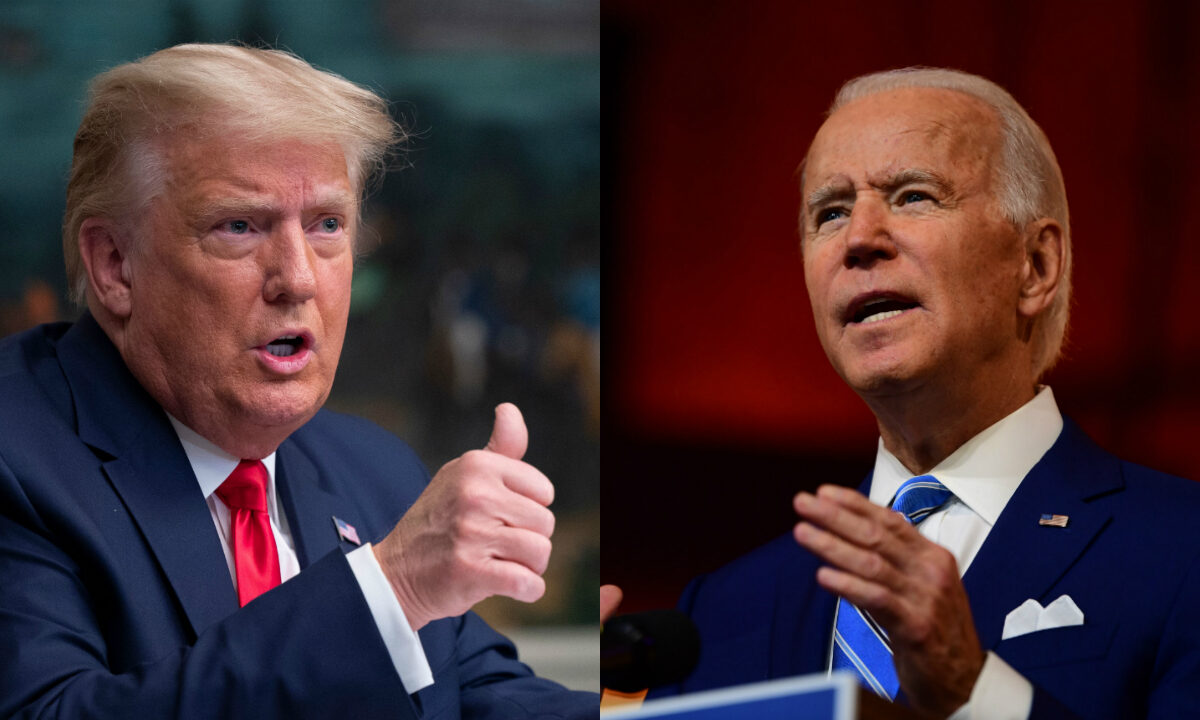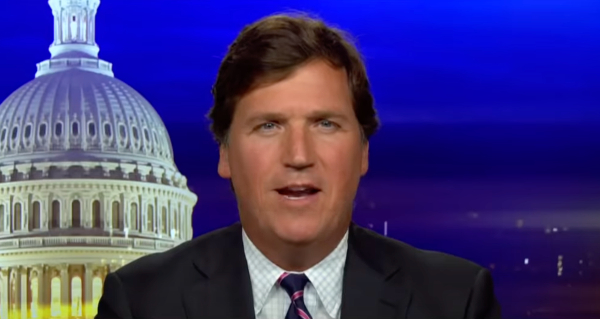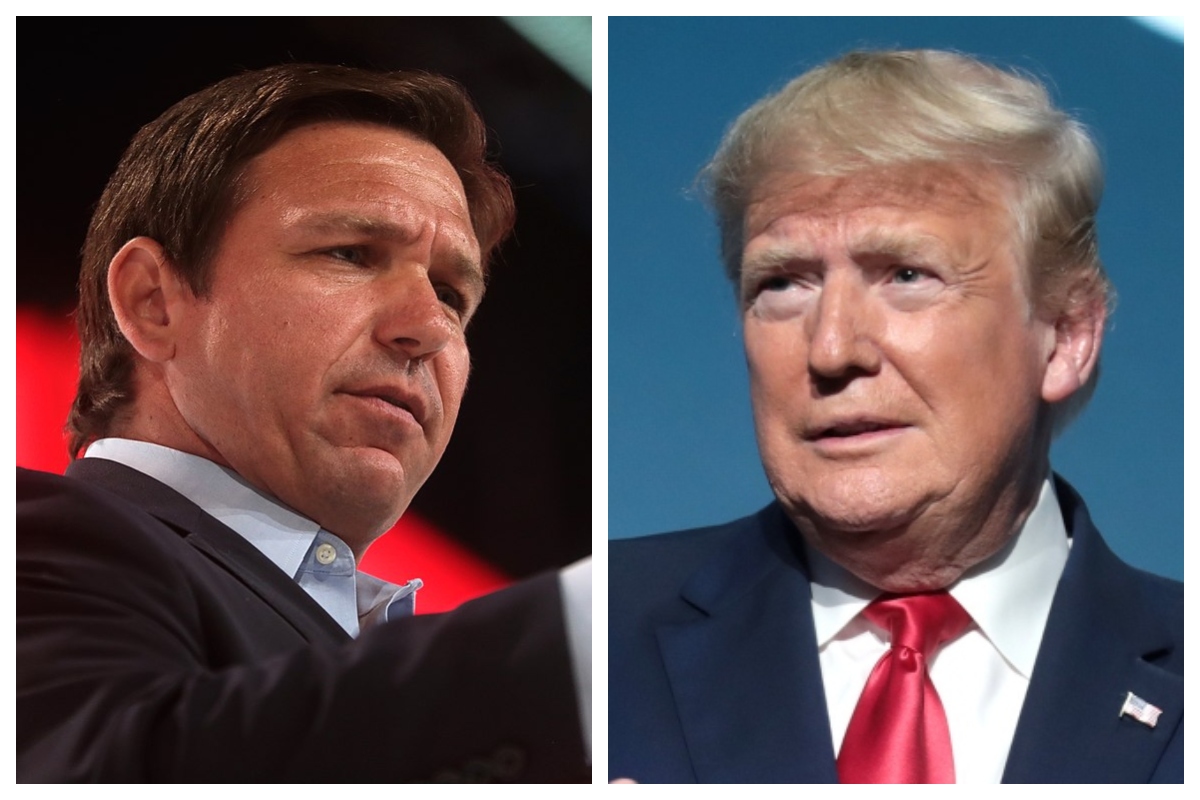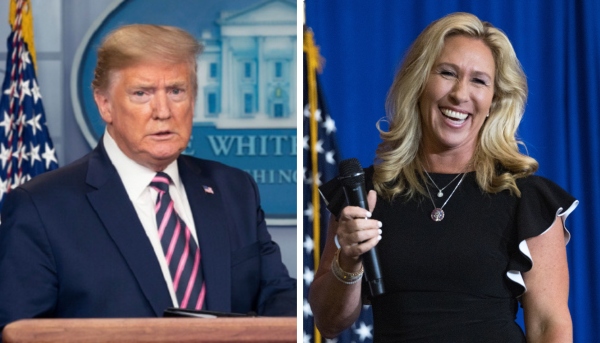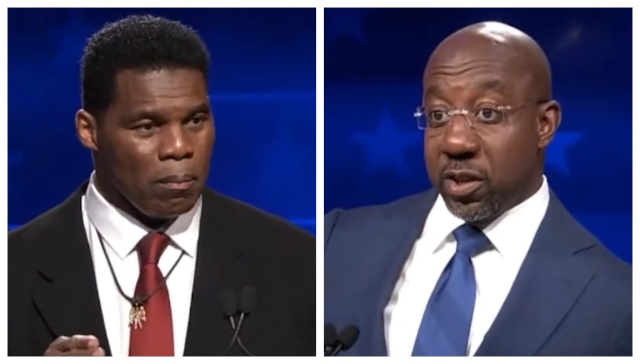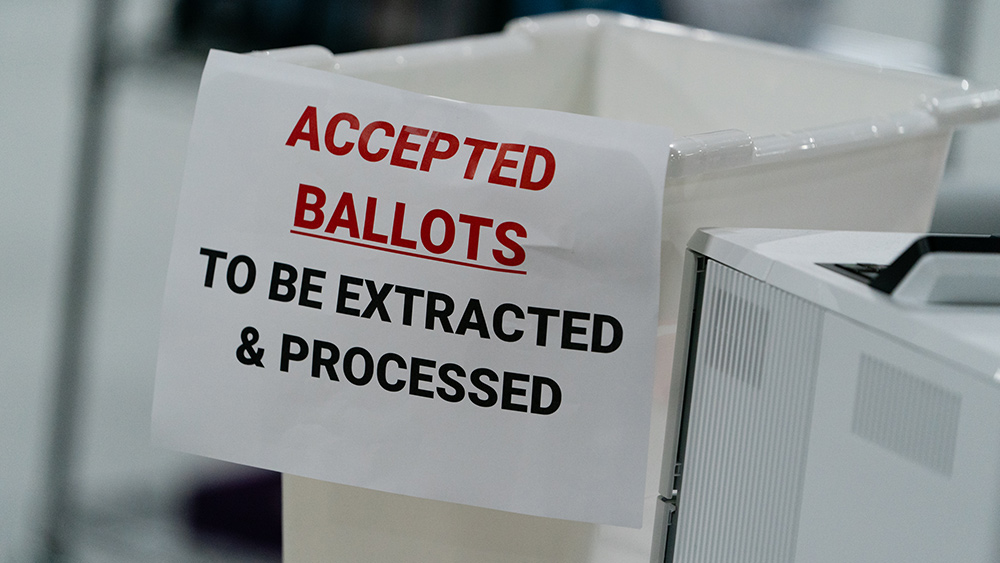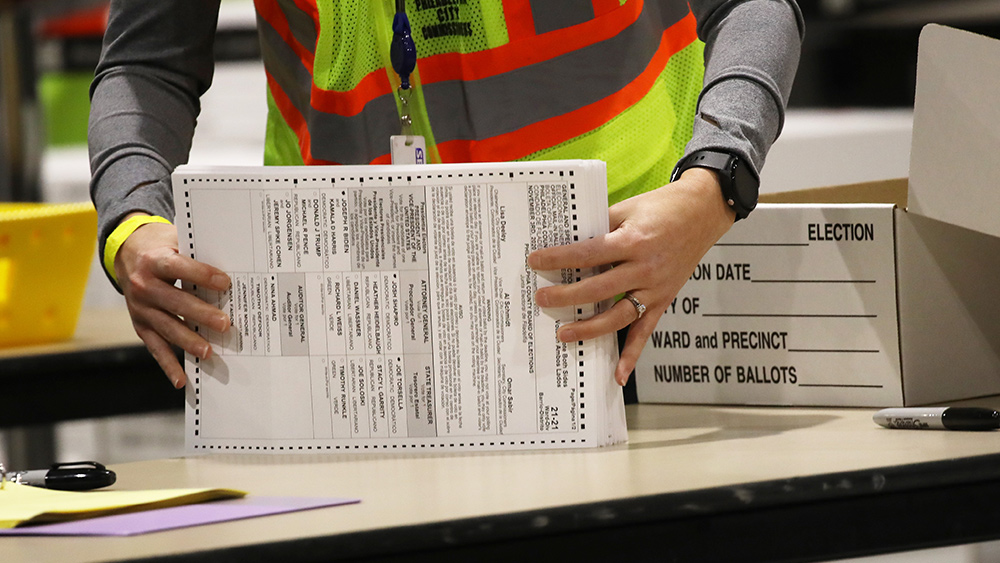Revolver exclusive — Meet Norm Eisen: Legal hatchet man and central operative in the “color revolution” against President Trump
09/17/2020 / By News Editors
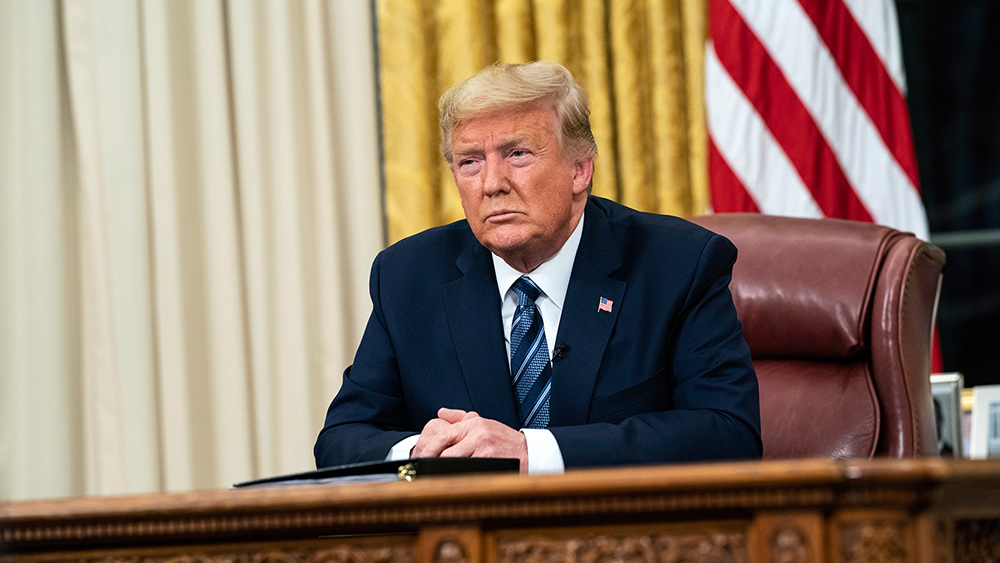
In our report on Never Trump State Department official George Kent, Revolver News first drew attention to the ominous similarities between the strategies and tactics the United States government employs in so-called “Color Revolutions” and the coordinated efforts of government bureaucrats, NGOs, and the media to oust President Trump.
(Article republished in part from Revolver.news)
Our recent follow-up to this initial report focused specifically on a shadowy, George Soros linked group called the Transition Integrity Project (TIP), which convened “war games” exercises suggesting the likelihood of a “contested election scenario,” and of ensuing chaos should President Trump refuse to leave office. We further showed how these “contested election” scenarios we are hearing so much about play perfectly into the Color Revolution framework sketched out Revolver News’ first installment in the Color Revolution series.
This third installment of Revolver News‘ series exposing the Color Revolution against Trump will focus on one quiet and indeed mostly overlooked participant in the Transition Integrity Project’s biased election “war games” exercise—a man by the name of Norm Eisen.

Norm Eisen
As the man who implemented the David Brock blueprint for suing the President into paralysis and his allies into bankruptcy, who helped mainstream and amplify the Russia Hoax, who drafted 10 articles of impeachment for the Democrats a full month before President Trump ever called the Ukraine President in 2018, who personally served as special counsel litigating the Ukraine impeachment, who created a template for Internet censorship of world leaders and a handbook for mass mobilizing racial justice protesters to overturn democratic election results, there is perhaps no man alive with a more decorated resume for plots against President Trump.
Indeed, the story of Norm Eisen – a key architect of nearly every attempt to delegitimize, impeach, censor, sue and remove the democratically elected 45th President of the United States – is a tale that winds through nearly every facet of the color revolution playbook. There is no purer embodiment of Revolver’s thesis that the very same regime change professionals who run Color Revolutions on behalf of the US Government in order to undermine or overthrow alleged “authoritarian” governments overseas, are running the very same playbook to overturn Trump’s 2016 victory and to pre-empt a repeat in 2020. To put it simply, what you see is not just the same Color Revolution playbook run against Trump, but the same people using it against Trump who have employed it in a professional capacity against targets overseas—same people same playbook.
In Norm Eisen’s case, the “same people same playbook” refrain takes an arrestingly literal turn when one realizes that Norm Eisen wrote a classic Color Revolution regime change manual, and conveniently titled it “The Playbook.”

Just what exactly is President Obama’s former White House Ethics Czar (yes, Norm Eisen was Obama’s ethics Czar), his longtime friend since Harvard Law School, who recently partook in war games to simulate overturning a Trump electoral victory, doing writing a detailed playbook on how to use a Color Revolution to overthrow governments? The story of Norm Eisen only gets more fascinating, outrageous, and indispensable to understanding the planned chaos unfolding before our eyes, leading up to what will perhaps be the most chaotic election in our nation’s recent history.
——————-
“I’d Rather Have This Book Than The Atomic Bomb”
Before we can fully appreciate the significance of Norm Eisen’s Color Revolution manual “The Playbook,” we must contextualize this important book in relation to its place in Color Revolution literature.
As a bit of a refresher to the reader, it is important to emphasize that when we use the term “Color Revolution” we do not mean any general type of revolution—indeed, one of the chief advantages of the Color Revolution framework we advance is that it offers a specific and concrete heuristic by which to understand the operations against Trump beyond the accurate but more vague term “coup.” Unlike the overt, blunt, method of full scale military invasion as was the case in Iraq War, a Color Revolution employs the following strategies and tactics:
A “Color Revolution” in this context refers to a specific type of coordinated attack that the United States government has been known to deploy against foreign regimes, particularly in Eastern Europe deemed to be “authoritarian” and hostile to American interests. Rather than using a direct military intervention to effect regime change as in Iraq, Color Revolutions attack a foreign regime by contesting its electoral legitimacy, organizing mass protests and acts of civil disobedience, and leveraging media contacts to ensure favorable coverage to their agenda in the Western press. [Revolver]
This combination of tactics used in so-called Color Revolutions did not come from nowhere. Before Norm Eisen came Gene Sharp—originator and Godfather of the Color Revolution model that has been a staple of US Government operations externally (and now internally) for decades. Before Norm Eisen’s “Playbook” there was Gene Sharp’s classic “From Dictatorship to Democracy,” which might be justly described as the Bible of the Color Revolution. Such is the power of the strategies laid out by Sharp that a Lithuanian defense minister once said of Sharp’s preceding book (upon which Dictatorship to Democracy builds) that “I would rather have this book than the nuclear bomb.”

Gene Sharp
It would be impossible to do full justice to Gene Sharp within the scope of this specific article. Here are some choice excerpts about Sharp and his biography to give readers a taste of his significance and relevance to this discussion.
Gene Sharp, the “Machiavelli of nonviolence,” has been fairly described as “the most influential American political figure you’ve never heard of.”1 Sharp, who passed away in January 2018, was a beloved yet “mysterious” intellectual giant of nonviolent protest movements, the “father of the whole field of the study of strategic nonviolent action.”2 Over his career, he wrote more than twenty books about nonviolent action and social movements. His how-to pamphlet on nonviolent revolution, From Dictatorship to Democracy, has been translated into over thirty languages and is cited by protest movements around the world. In the U.S., his ideas are widely promoted through activist training programs and by scholars of nonviolence, and have been used by nearly every major protest movement in the last forty years.3 For these contributions, Sharp has been praised by progressive heavyweights like Howard Zinn and Noam Chomsky, nominated for the Nobel Peace Prize four times, compared to Gandhi, and cast as a lonely prophet of peace, champion of the downtrodden, and friend of the left.4
Gene Sharp’s influence on the U.S. activist left and social movements abroad has been significant. But he is better understood as one of the most important U.S. defense intellectuals of the Cold War, an early neoliberal theorist concerned with the supposedly inherent violence of the “centralized State,” and a quiet but vital counselor to anti-communist forces in the socialist world from the 1980s onward.
In the mid-1960s, Thomas Schelling, a Nobel Prize-winning nuclear theorist, recruited 29-year-old Sharp to join the Center for International Affairs at Harvard, bastion of the high Cold War defense, intelligence, and security establishment. Leading the so-called “CIA at Harvard” were Henry Kissinger, future National Security Advisor McGeorge Bundy, and future CIA chief Robert Bowie. Sharp held this appointment for thirty years. There, with Department of Defense funds, he developed his core theory of nonviolent action: a method of warfare capable of collapsing states through theatrical social movements designed to dissolve the common will that buttresses governments, all without firing any shots. From his post at the CIA at Harvard, Sharp would urge U.S. and NATO defense leadership to use his methods against the Soviet Union. [Nonsite]
We invite the reader to reflect on the passages in bold, particularly their potential relevance to the current domestic situation in the United States. Sharp’s book and strategy for “non violent revolution” AKA “peaceful protests” has been used to undermine or overthrow target governments all over the world, particularly in Eastern Europe.

Gene’s color revolution playbook was of course especially effective in Eastern Bloc countries in Eastern Europe:

Finally, there is no shortage of analysis as to the applicability of Sharp’s methods domestically within the USA in order to advance various left wing causes. This passage specifically mentions the applicability of Sharp’s methods to counter act Trump.

Ominous stuff indeed. For readers who wish to read further, please consult the full Politico piece from which we have excerpted the above highlighted passages. There is also a fascinating documentary on Sharp instructively titled “How to Start a Revolution.”
This is all interesting and disturbing, to say the least. In its own right it would suggest a compelling nexus point between the operations run against Trump and the Color Revolution playbook. But what does this have to do with our subject Norm Eisen? It just so happens that Eisen explicitly places himself in the tradition of Gene Sharp, acknowledging his book “The Playbook” as a kind of update to Sharp’s seminal “Dictatorship to Democracy.”
And there we have it, folks—Norm Eisen, former Obama Ethics Czar, Ambassador to Czechoslovakia during the “Velvet Revolution,” key counsel in impeachment effort against Trump, and participant in the ostensibly bi-partisan election war games predicting a contested election scenario unfavorable to Trump—just happens to be a Color Revolution expert who literally wrote the modern “Playbook” in the explicitly acknowledged tradition of Color Revolution Godfather Gene Sharp’s “From Dictatorship to Democracy.”
Before we turn to the contents of Norm Eisen’s Color Revolution manual, full title “The Democracy Playbook: Preventing and Reversing Democratic Backsliding,” it will be useful to make a brief point regarding the term “democracy” itself, which happens to appear in the title of Gene Sharp’s book “From Dictatorship to Democracy” as well.
Just like the term “peaceful protestor,” which, as we pointed out in our George Kent essay is used as a term of craft in the Color Revolution context, so is the term “democracy” itself. The US Government launches Color Revolutions against foreign targets irrespective of whether they actually enjoy the support of the people or were elected democratically. In the case of Trump, whatever one says about him, he is perhaps the most “democratically” elected President in America’s history. Indeed, in 2016 Trump ran against the coordinated opposition of the establishments of both parties, the military industrial complex, the corporate media, Hollywood, and really every single powerful institution in the country. He won, however, because he was able to garner sufficient support of the people—his true and decisive power base as a “populist.” Precisely because of the ultra democratic “populist” character of Trump’s victory, the operatives attempting to undermine him have focused specifically on attacking the democratic legitimacy of his victory.
In this vein we ought to note that the term “democratic backsliding,” as seen in the subtitle of Norm Eisen’s book, and its opposite “democratic breakthrough” are also terms of art in the Color Revolution lexicon. We leave the full exploration of how the term “democratic” is used deceptively in the Color Revolution context (and in names of decidedly anti-democratic/populist institutions) as an exercise to the interested reader. Michael McFaul, another Color Revolution expert and key anti-Trump operative somewhat gives the game away in the following tweet in which the term “democratic breakthrough” makes an appearance as a better sounding alternative to “Color Revolution:”
Most likely as a response to Revolver News’ first Color Revolution article on State Department official George Kent, former Ambassador McFaul issued the following tweet as a matter of damage control:
Autocrats have demonized the phrase, "color revolutions." (& revolution generally has a negative connotation for many.) Instead, I use the term "democratic breakthroughs."
— Michael McFaul (@McFaul) August 23, 2020
What on earth then might Color Revolution expert and Obama’s former ambassador to Russia Michael McFaul, who has been a key player agitating for President Trump’s impeachment, mean by “democratic breakthrough?”
Being a rather simple man from a simple background, McFaul perhaps gave too much of this answer away in the following explanation (now deleted).

With this now-deleted tweet we get a clearer picture of the power bases that must be satisfied for a “democratic breakthrough” to occur—and conveniently enough, not one of them is subject to direct democratic control. McFaul, Like Eisen, George Kent, and so many others, perfectly embodies Revolver’s thesis regarding the Color Revolution being the same people running the same playbook. Indeed, like most of the star never-Trump impeachment witnesses, McFaul is or has been an ambassador to an Eastern European country. He has supported operations against Trump, including impeachment. And, like Norm Eisen, he has actually written a book on Color Revolutions (more on that later).
Norm Eisen’s The Democracy Playbook: A Brief Overview:
A deep dive into Eisen’s book would exceed the scope of this relatively brief exposé. It is nonetheless important for us to draw attention to key passages of Eisen’s book to underscore how closely the “Playbook” corresponds to events unfolding right here at home. Indeed, it would not be an exaggeration to say that regime change professionals such as Eisen simply decided to run the same playbook against Trump that they have done countless times when foreign leaders are elected overseas that they don’t like and want to remove via extra-democratic means—“peaceful protests,” “democratic breakthroughs” and such.
First, consider the following passage from Eisen’s Playbook:
…
Story continues at Revolver.news
Submit a correction >>
Tagged Under:
antifa, Black Lives Matter, BLM, chaos, color revolution, communism, coup, deep state, elections, government, hypocrisy, left cult, legal hatchet man, Marxism, Norm Eisen, politics, protests, revolution, riots, treason, Trump, uprising, violence
This article may contain statements that reflect the opinion of the author
RECENT NEWS & ARTICLES
Trump.News is a fact-based public education website published by Trump News Features, LLC.
All content copyright © 2018 by Trump News Features, LLC.
Contact Us with Tips or Corrections
All trademarks, registered trademarks and servicemarks mentioned on this site are the property of their respective owners.

